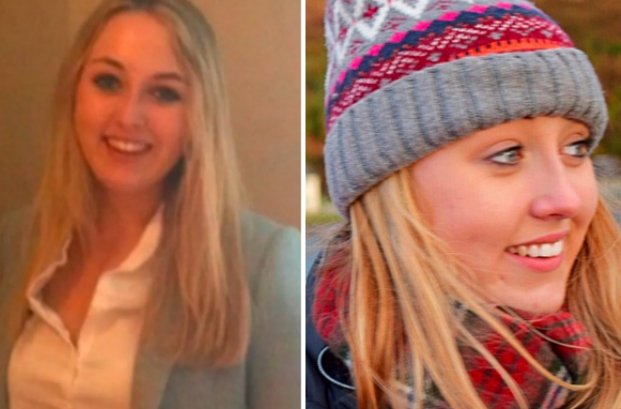The tragic story of Katie Allan and William Lindsay, who both took their own lives in Polmont Young Offenders Institution
Katie Allan and William Lindsay were two young people who died by suicide in Scotland’s prisons. They both left behind grieving families who are now seeking answers and accountability from the authorities.
Katie Allan: A victim of prison neglect and bullying
Katie Allan was 21 years old when she died by hanging herself at Polmont Young Offenders Institution in June 2018. She was serving a sentence for a hit-and-run crash while drunk, which injured a teenage boy.
Her parents, Linda and Stuart Allan, had pleaded with the sheriff to spare her from prison, as she was a first-time offender studying geography at the University of Glasgow. They had been assured by their lawyer that the chances of their daughter being sent to prison were “next to nothing”.

However, they were shocked when they learned that she had been sentenced to 16 months in Polmont, near Falkirk. They felt helpless and terrified for her, as they did not know where she was or how to contact her.
They later discovered that Katie had suffered from extreme distress during her time in prison. She had been bullied by other inmates, who threatened her with violence and recrimination for imagined slights. She had also been neglected by the prison staff, who failed to provide her with adequate sanitary supplies or mental health support.
She had lost her hair due to alopecia, developed eczema on her arms, and suffered from depression and anxiety. She had attempted suicide before, but was saved by another inmate who loaned her some sanitary towels.
William Lindsay: A victim of child protection system failure
William Lindsay was 16 years old when he died by hanging himself at Polmont Young Offenders Institution in October 2018. He was on remand at the prison for an unknown offence.
His brother, John Reilly, said that William had spent most of his life in the care system. He had been abused by his father at home, and placed on the child protection register as an infant.
He had also struggled with drugs and domestic violence at home. He had been arrested several times for minor offences, such as shoplifting and vandalism.
He hoped that going to prison would give him a chance to turn his life around. However, he soon realised that he was not prepared for the harsh realities of prison life. He faced violence from other inmates, isolation from his family and friends, and lack of education or training opportunities.
He also suffered from mental health problems, such as depression and suicidal thoughts. He felt hopeless and worthless about his future. He tried to cope by writing letters to his loved ones or listening to music on his headphones.
The families’ fight for justice: A joint Fatal Accident Inquiry
The deaths of Katie Allan and William Lindsay have sparked outrage and grief among their families and friends. They have also prompted a demand for justice from the authorities.
The Scottish government has ordered a joint Fatal Accident Inquiry (FAI) into their deaths, which is due to begin in January 2023. The FAI will examine how they died in custody, what went wrong before their deaths, what could have been done differently to prevent them or reduce their risk of harm or suicide.
The FAI will also look into whether there are any systemic issues or failures within the Scottish Prison Service (SPS) or other agencies that contributed to their deaths or affected their wellbeing while they were in custody.
The families hope that the FAI will bring closure and accountability for their loved ones’ deaths. They also hope that it will lead to reforms within the SPS or other institutions that will improve the conditions and care for young people in custody.
They have set up a campaign called “Justice for Katie & William”, which aims to raise awareness about their cases and advocate for change within the justice system.
They have also joined forces with other organisations that support prisoners’ rights or mental health issues, such as Amnesty International Scotland or Mind Scotland.
They say that they want justice not only for themselves but also for all young people who are affected by imprisonment or criminal justice involvement.


















